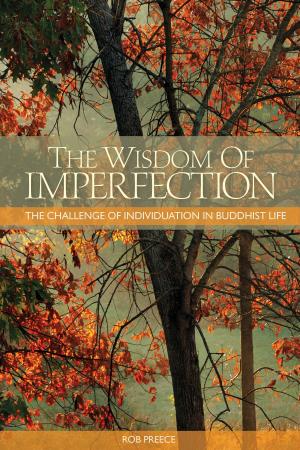The Wisdom of Imperfection: The Challenge of Individuation in Buddhist Life

Rob Preece does a convincing job of bridging Jungian psychology to Buddhist practice in The Wisdom of Imperfection. Preece explains how Carl Gustav Jung’s notion of Individuation—the process of the personality’s growth and expansion into the wider psyche towards a potential state of wholeness, coincides with Buddhist ideas of bringing the ego into greater presence and awareness into one’s life. He illustrates the similarities between these philosophical angles by using examples from his own life experience, and this sincere exploration enhances the quality of his discussion.
Not quite a page-turner, but a book that slowly carries you deep into thought page after page, offering light-bulb moments for those who already have a basic understanding of Jung’s thought and the Buddhist way. A text I’d therefore strongly suggest for those with some knowledge of the two fields—though a glossary is provided.
As a feminist thinker, I felt critical of the author’s use of western mythologist, Joseph Campbell’s study of the hero’s journey as the model for the spiritual path of gradual awakening. The hero’s adventure is a metaphor of the Individuation process in Jungian psychology. Typically in myth the hero, usually male, responds to the call to leave home, encounters a dragon he must slay and returns home with renewed perspective or enlightenment. What is troubling is that the archetypal patterns described in this quest are based on men’s experiences of the world. Women as central characters experience a different reality—one that is neglected by Campbell’s view. His study approaches the female element in the journey as either the prize or the engulfing presence. Equally disturbing is the assumption that the woman can simply model her spiritual path on male rites of passage and psychological transformation.
So, I was happy to read of Preece’s vigilant awareness of patriarchal bias in both Western and Eastern beliefs. However, the process of Individuation is mostly described here through examples of male heroes. This is understandable since he relies on thinkers who have constructed their thought around a male structure of psychological reality. Also, I was a little sceptical of the idea of the hero (the personality or ego) who must severe ties with the mother archetype in order to begin the adventure, when French feminists such as Luce Irigaray insist that this relationship be healed not broken in order for men and women to respect the feminine. The daughter should certainly not break away from the mother (psychic or real) if a woman is to develop a healthy relationship with herself.
Still, The Wisdom of Imperfection makes a great effort to marry Western psychotherapy to Eastern spiritual thinking and quite clearly informs the reader of the need to address patriarchy in both cultures when seeking one’s own truth. With engaging drawings of Buddhist deities throughout the book, Preece offers the reader insightful wisdom for those on the path to self-discovery, particularly those struggling to negotiate their Buddhist practice with Western reality.